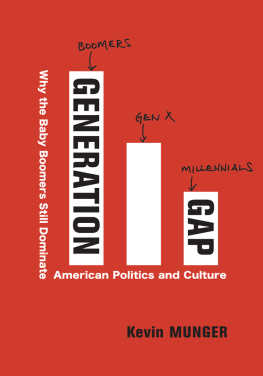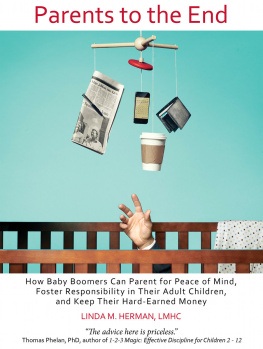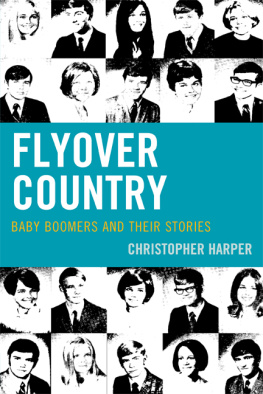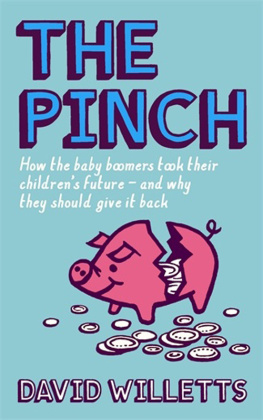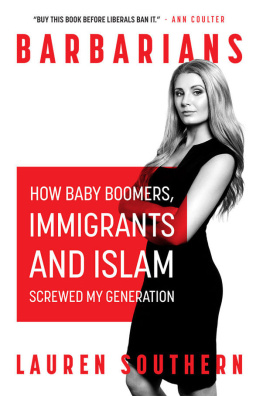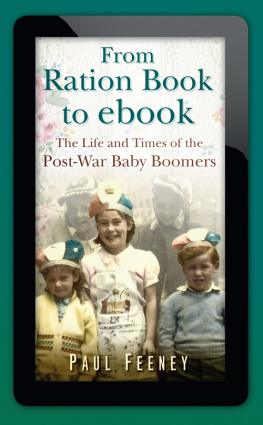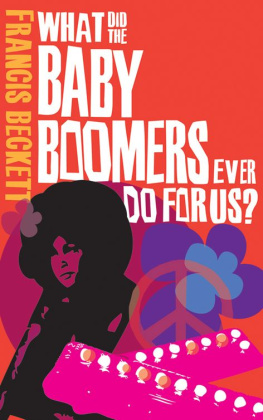First published in Great Britain in 2016 by
Policy Press University of Bristol 1-9 Old Park Hill Bristol BS2 8BB UK Tel +44 (0)117 954 5940 e-mail
North American office: Policy Press c/o The University of Chicago Press 1427 East 60th Street Chicago, IL 60637, USA t: +1 773 702 7700 f: +1 773-702-9756 e:
Policy Press 2016
British Library Cataloguing in Publication Data
A catalogue record for this book is available from the British Library
Library of Congress Cataloging-in-Publication Data
A catalog record for this book has been requested
ISBN 978-1-4473-1877-4 hardcover
ISBN 978-1-4473-3515-3 ePub
ISBN 978-1-4473-3516-0 Mobi
The right of Naomi Woodspring to be identified as author of this work has been asserted by her in accordance with the Copyright, Designs and Patents Act 1988.
All rights reserved: no part of this publication may be reproduced, stored in a retrieval system, or transmitted in any form or by any means, electronic, mechanical, photocopying, recording, or otherwise without the prior permission of Policy Press.
The statements and opinions contained within this publication are solely those of the author and not of the University of Bristol or Policy Press. The University of Bristol and Policy Press disclaim responsibility for any injury to persons or property resulting from any material published in this publication.
Policy Press works to counter discrimination on grounds of gender, race, disability, age and sexuality.
Cover design by Policy Press
Front cover image: istock
This book has been optimised for PDA.
Tables may have been presented to accommodate this devices limitations.
Image presentation is limited by this devices limitations.
To Cian
Acknowledgements
No endeavor is ever possible without the behind the scenes support, encouragement, and a willing listening ear. I am deeply grateful to my friends, family, and colleagues who provided me with all that and more.
Both the research and this book would not have been possible without Dr Robin Means. He has been unfailing in his support and encouragement. To use an antiquated but marvelous phrase, Robin is a true gentleman and a scholar. My daughter, Phoebe, copy-editor and proofer supreme, and I survived this project, our relationship intact. In between the bookends of death and new life we have argued over words and semi-colons. I am grateful that the life of the mind is an important meeting place for us. Thank you to Sukey Parnell and Marian Connolly for your thoughtful and useful comments. Much appreciation and gratitude to Dr Sue Tate for pouring over some of these chapters with an open, questioning mind, and an unfailing sense of content, context, and critique. Thank you Nick for having the patience of a saint and a willingness to hoover, shop and cook and listen, listen, listen. You are the best.
ONE
Introduction: the curiosity of ageing body, time, and identity
We who are older have enormous freedom to speak out, and equally great responsibility to take the risks that are needed to heal and humanize our sick society. We can try new things and take on entirely new roles. (Kuhn quoted in Dychtwald, 1978/2012)
Leave safety behind. Put your body on the line. Stand before the people you fear and speak your mind even if your voice shakes. When you least expect it, someone may actually listen to what you have to say. Well-aimed slingshots can topple giants. And do your homework. (Kuhn, 1977)
As a young American in the Sixties, Maggie Kuhn was one of the few older people on my radar who were labeled as cool. The organization she founded, the Grey Panthers, got its name after one of the Black Panthers, the radical liberation organization, suggested it to Maggie. To me, Maggie seemed mouthy and fearless and she was raising a ruckus. She was shaking up what we used to call, the system, and her campaign called for young and old together (1972), because our concerns were, in many ways, the same. And then, I forgot about her. She was not one of my heroes, just a cool old woman who got it. Fast-forward about 40 years and, at the age of 60, I had my first experience of ageism. Upset and angry, I started to read about the experience of ageing and ageism. I remembered Maggie Kuhn and read everything she had written that I could get my hands on.
So much of what she had to say and what she stood for holds true today; she was a true visionary. Much of what she campaigned for and was about is relevant today. Some ageist ideas have gone by the wayside, while another new, virulent rhetoric has risen up that of the selfish generation and stolen futures. Some of the stereotypes of ageing that Kuhn and the Grey Panthers agitated about have been dispelled. She stated that old people are not wrinkled babies and senior care homes are not glorified playpens. Longevity, understanding, and exploration of the meaning of old age are central to the postwar generations coming of age. If those images of wrinkled babies and glorified playpens still exist within pockets of society, this generation will most likely pry those ideas loose. Thanks, Maggie Heres to raising a ruckus and doing your homework.
A study of time, body, identity, and ageing
At its core, this book is a study of the postwar cohorts experience of time, body, identity and ageing. In the last 30 years, each of these areas has been explored by sociologists and gerontologists to varying degrees, but not as a unified whole. The interconnections, the entanglement of time, body, and identity, offer another pathway to an understanding of ageing. There is no single and distinct way of describing ageing and what it means to get older, but those questions are on the minds of the postwar generation, the baby boomers. A principal element of this book is their attempts to answer those questions. Many times, ageing is viewed from a monolithic perspective. It is as if all old people are one category and all ageing people are described in a singular account. There is no one story, no single dimension that encompasses this aspect of the human life span. It is true that ageing, the last part of the human life span, is a universal experience but, in reality, it is nuanced and in many ways, there are radical differences between older people depending on a myriad of factors from class to culture to historical period. Time, both the times we live in and time within us, has a significant impact on our conception of ageing bodies and our sense of self. By the same token, this is a permeable process as we are influenced, so we are also an influence. In these pages the rich interlacing of temporality and embodiment as manifested through old age is examined through the lived experience of the postwar cohort.
Ageing bodies in time
For those who are lucky enough to reach old age, there is a commonality in the experience of ageing body. Yet, it is an experience that is also specific to our culture and our time in history. The intention of this book is to explore one small slice of history and culture, the ageing of the baby boomers. This is not to say that this cohorts experience of ageing is unique, but, instead, it exemplifies the reality of ageing body and identity within a specific span of time. This book could have been written about the parents of the postwar cohort or, in some years time, their children. There is much of interest about the Sixties and coming of age at that time that is underlined by changing notions of our ageing bodies. Investigating ageing body and identity in relationship to time raises some immediate questions. Does the meaning of our lived-in bodies change with history/time? Do our notions of ageing body remain static or do they change? How does time live within us? In what ways does that influence our identities? I found that growing up in the 1950s, under the shadow of the H-bomb, and coming of age in the 60s provided an intriguing window into the answers to those, and more, questions. Body, time, and identity have been explored as separate areas by sociologists, anthropologists (with various specialties), and gerontologists. The goal of this book is to enfold those three aspects of our human experience and explore them through the lens of ageing.



